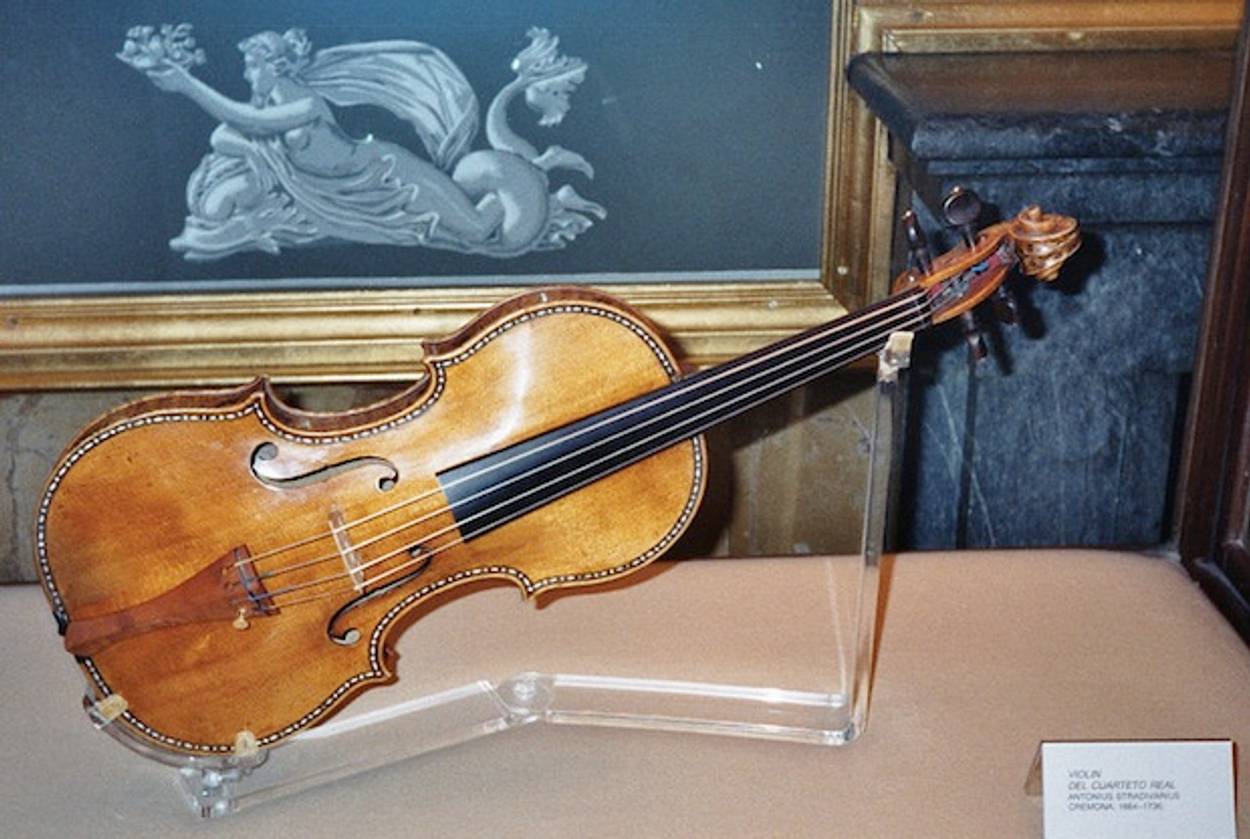Joseph Goebbels’s Violin
The haunted history of a famous violin




One of those seemingly incomprehensible war stories came out over the weekend about a violin gifted to Japanese musician Nejiko Suwa by the infamous Nazi propagandist Joseph Goebbels. The central question is whether or not the priceless violin–reportedly a Stradivarius from 1722–was a treasure plundered by the Nazis. Carla Shapreau writes:
Much is documented — if little remembered — about Goebbels’s gift on Feb. 22, 1943. But the origins of the violin itself remain a mystery. Was it confiscated property, one of thousands of musical instruments plundered by the Nazis, or otherwise obtained under duress from those persecuted during the Nazi era?
When Ms. Suwa and her violin returned to Japan, the whispers followed. They have trailed the instrument for nearly 70 years.
But the story hinges on more than that, the responsibility of the artist to find out the truth about the instrument against the backdrop of how music was silenced for those trampled by horrors of the Second World War.
From the ghetto in Lodz, Poland, where approximately 200,000 Jews were sent during the Holocaust, comes the account of a decree from the authorities that ordered the surrender of all musical instruments.
“Beethoven, Mozart, Chopin, Schumann, will fall silent in the ghetto forever,” a captive resident wrote in 1944. “The street will notice nothing, harsh life will go on; and to the torments of hunger and cold will be added the unappeased craving for music.”
We also get to follow Suwa through the years. She fled to Berlin from Paris after the Allies captured it and then was captured by the Seventh Army in the Austrian Alps. Suwa was on a boat to New York when the United States dropped atom bombs on Hiroshima and Nagasaki. Upon arriving in the States, she was interned. Finally, after the war, she made her way back home to Japan.
In 1951 she boldly returned to America to perform in a benefit concert at the Hollywood Bowl. The Los Angeles press praised her as the “first Japanese musical star to set foot on American soil since the signing of the peace treaty,” which after prolonged negotiations had been signed by 49 nations one week earlier.
The star-studded cast of performers included 200 musicians and stars of stage, screen, television and radio, including Benny Goodman, Lionel Barrymore and André Previn. Bob Hope presided as master of ceremonies.
On Goebbels’s violin, before an American audience, Ms. Suwa played a piece she had performed in Toyko when she was just 10, the Concerto in E minor by Mendelssohn, a composer whose works had been banned by the Nazis.
Suwa died this March at age 92.
Adam Chandler was previously a staff writer at Tablet. His work has appeared in the New York Times, the Wall Street Journal, the Atlantic, Slate, Esquire, New York, and elsewhere. He tweets @allmychandler.